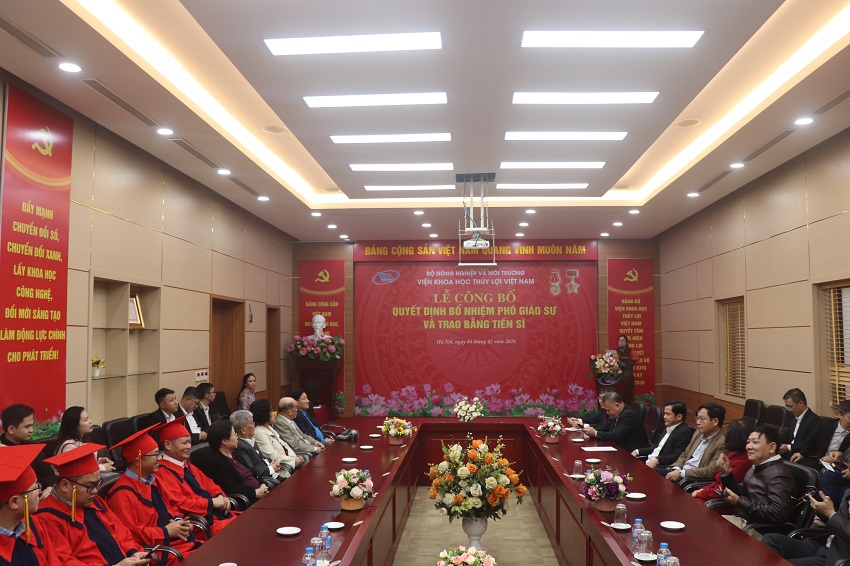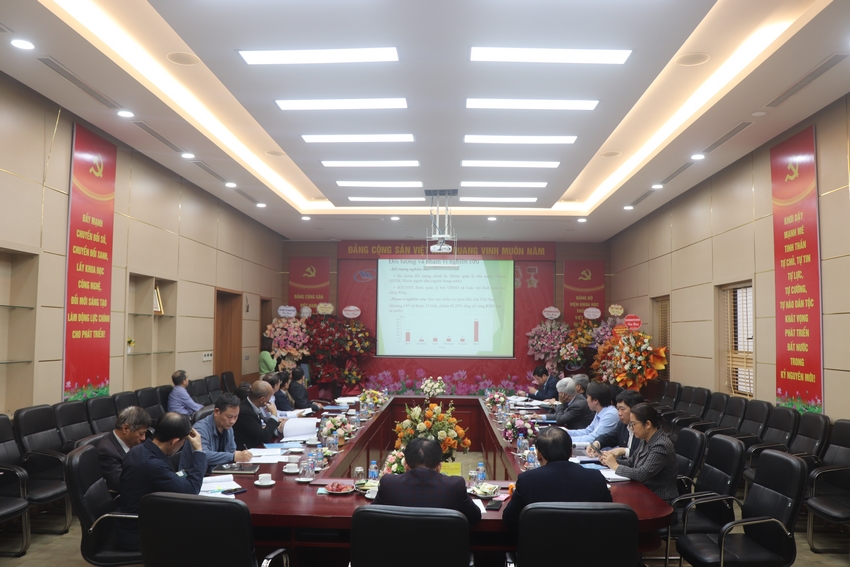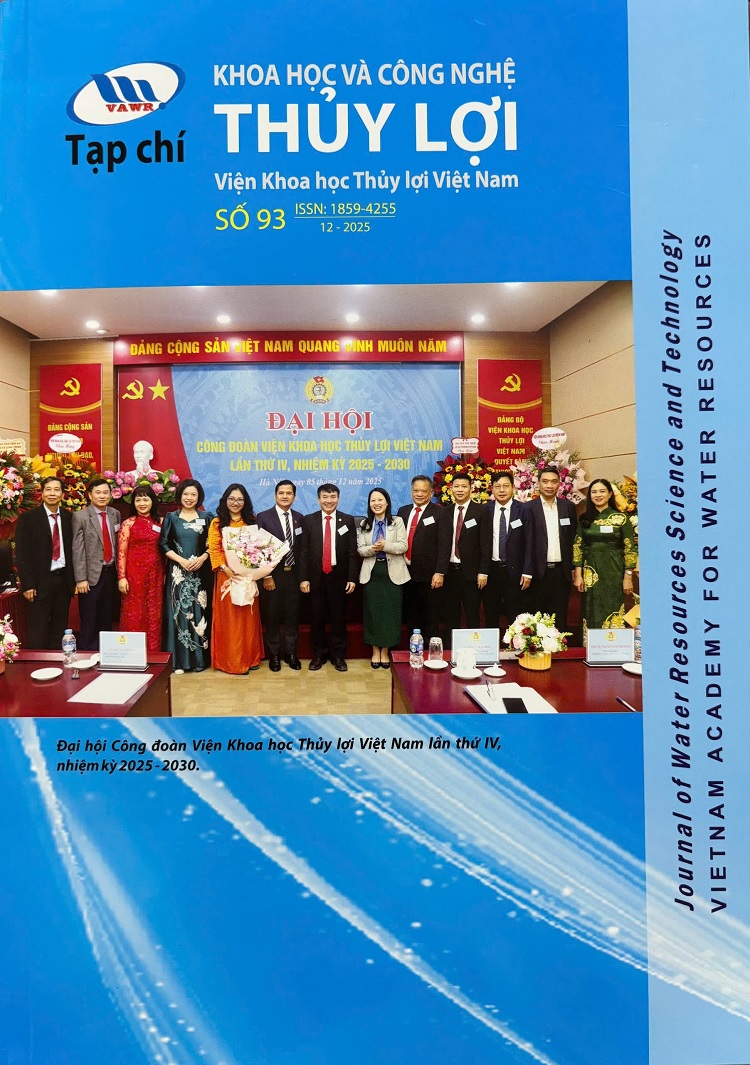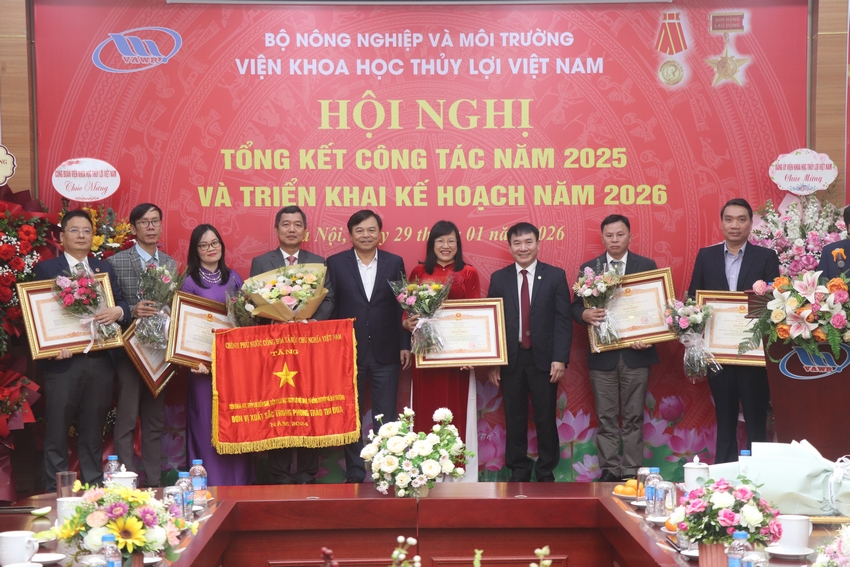Determining method irrogation water prices based on willingness to pay
23/09/2021The Law on Hydraulics and Irrigation was issued by the National Assembly on June 19, 2017 with many new points. In the Law the most important point is the regulation of moving from “fee” to “price” of Hydraulic products and services. The shift from fee to price changes the awareness of society about hydraulic works from “serving” to the right nature of “service”; helping service users understand the goods nature of water, considering irrigation service as an input service for production, raise awareness of using water economically.
At present, irrigation product and service price are still being calculated based on the approach from the service provider, which means determined from production costs. But when we consider water as a “commodity”, considering irrigation as a “service” sector in a market economy, the price of irrigation products should be considered from the perspective of service and goods users. On the basis of item 2, Clause 3, Article 34 of the Law, it is proposed to determine the price of irrigation service products based on the willingness to pay of water users. In Vietnam this is still new.
The scientific report presents the scientific foundation for the method of determining the price of irrigation services based on the willingness to pay of users. Case study is conducted in Nam Dinh province. The result of this study will serve as a basis for proposing irrigation product prices and is an implication on solutions for operational management policy of irrigation systems and agricultural production development..
1. Introduction
2. Research methodology
2.1 Subject of the study
2.2 Data collection and analysis
3. Research results
3.1 Research area
3.2 Research model
3.3 Results
4. Conclusions
REFERENCES
[1] Alemayehu, T. (2014). Farmers’ Small holder Farmers’ Willingness to Pay for Improved Irrigation Water: A Contigent Valuation Study in Koga Irrigation Project Ethiopia. Journal of Economic and Sustainable Development, 5(19)5-15.
[2] Akter, S. (2007). Farmers’ Willingness to Pay for Irrigation Water under Government Managed Small Scale Irrigation Projects in Bangladesh. Journal of Bangladesh studies 9:21-31.
[3] Adepoju, A. A. and Omonona, B. T. (2009). Determinants of willingness to pay for improved water supply in Osogbo Metropolis, Osun State, Nigeria. Department of Agricultural Economics, Ladoke Akintola University of Technology.
[4] Nam Dinh branch of water resources. Summarizing the report on production and business results of private limited companies exploiting irrigation structures in Nam Dinh province in the period of 2015 - 2018.
[5] Latinopoulos, P. Z. M. (2001). Willingness to pay for irrigation water: A case study in Chalkidiki, Greece. Aristotle University of Thessaloniki, Greece.
[6] Mezgebo, A., Tessema, W., and Asfaw, Z. 2013. Economic Values of Irrigation Water in Wondo Genet District, Ethiopia: An Application of Contingent Valuation method. Journal of Economics and Sustainable Development, 4(2): 23-36.
[7] Moffat. B., Motlaleng. G. R. and Thukuza (2012). Households’ willingness to pay for improved water quality and reliability of supply in Chobe Ward, Maun. Botswana Journal of Economics 8(12): 45-61.
[8] Ogunniyi, L. T., Sanusi, W. A., & Ezekiel, A. A (2011). Determinants of rural household willingness to pay for safe water in Kwara State, Nigeria. Aquaculture, Aquarium, Conservation and Legislation International Journal of the Bioflux, 4(5): 660-669.
[9] The 15th National Assembly (2017). The law of irrigation no. 08/2017/QH14.
[10] Rodriguez, F., and Southgate, D (2003). Water resources management and willingness to pay: The case of Cotacachi, Ecuador. Sustainable Agriculture and Natural Resource Management Collaborative Research Support Program Research Brief, 15.
[11] Rohith, B. K. and Chandrakanth, M. G. (2011). Institutional and economic dynamics of water users cooperative societies in Cauvery basin of Karnataka. Agricultural Economics Research Review. 24(2): 235-242.
[12] Va´squez, W. F., Mozumder, P., Herna´ndez-Arce, J. and Berrens, R. P (2009). Willingness to pay for safe drinking water: Evidence from Parral, Mexico. Journal of Environmental Management 90(11): 3391-3400.
[13] Robert Cameron Mitchell, Richard T. Carson (1989). Using surveys to value public good the contingent valuation method. Washington D.C, USA. ISBN 0-915707-32-2.
[14] TrWashington D.C, USA. ISThe theory of statistics. The Publisher of National Economics Eniversity, 2013.
[15] Nam Dinh statistics office (2017). Nam Dinh yearbook 2017.
[16] The general statistics office (2016). Survey results of Vietnam living standards 2016
——————————————————————————————————————————
► See detail: Determining method irrogation water prices based on willingness to pay
Pham Hung
Vietnam Academy for Water resources
Bui Anh Tu
Hanoi University for Water Resources
Ý kiến góp ý:








